Spinal surgery
Spine diseases can appear due to a sedentary lifestyle, unfavorable ecology, improper diet or internal problems of the body. To treat or relieve symptoms, conservative therapy methods are usually chosen. But if they do not give the desired result, spinal surgery (surgery on the spine) comes to the rescue. This is one of the most modern and rapidly developing areas in the treatment of the spine and spinal cord.

specialists

equipment

treatment
For what diagnoses are surgeries prescribed
Indications for surgical intervention are situations when the nerves or spinal cord are compressed, serious changes or deformations occur in the vertebrae, defects arise, or injuries cause serious consequences.
Surgery most often becomes necessary if conservative treatment has not produced the desired result within six months, the disease progresses, and therapy only relieves symptoms but does not eliminate the causes.
Spinal surgery helps to correct disorders and eliminate pain, returning a person to full movement and comfort.
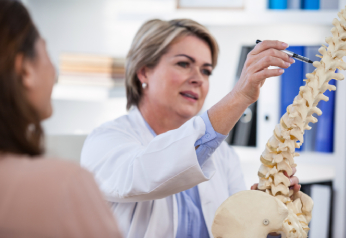
Surgical treatment of the spine is indicated in the following cases:
- Vertebral fracture, which most often occurs due to trauma
- Consequences of spinal cord injuries
- Tumors of the spinal cord or its membranes
- Spondylosis (degenerative disease of the spine, which can lead to loss of its functions)
- Osteoarthritis of the facet joints
- Protrusion or intervertebral hernia, which compress the nerves, causing severe pain
- Excessive mobility of the vertebrae
- Spondylolisthesis (displacement of one vertebra relative to another
- Spinal stenosis
- Scoliosis or kyphosis (curvature of the spine)
Main types of spine surgeries
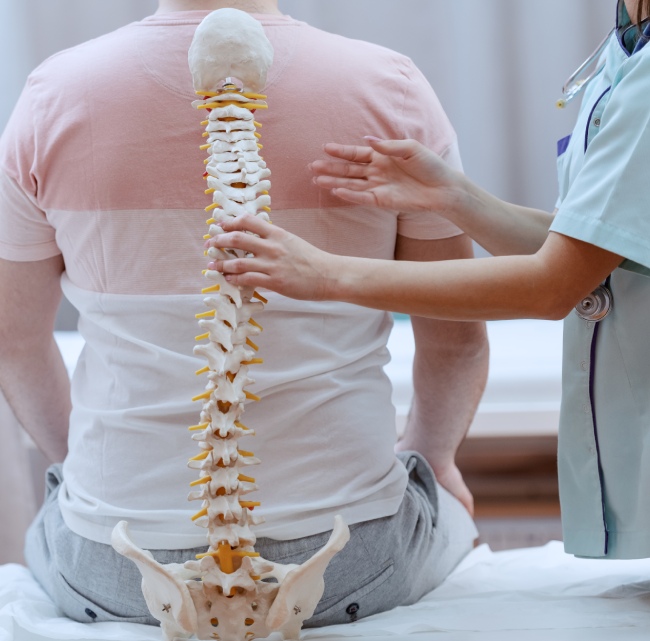
The method of performing the surgery depends on the location of the damaged area and the nature of the disease or injury. The choice of appropriate equipment is made after a full examination, which for us includes CT (computer tomography) and MRI (magnetic resonance imaging).
During spine surgeries, direct access to the vertebrae is often used. However, depending on the intervention area, the incision can be made from different sides. For example, when removing a hernia, the incision is made from the back. To work with the cervical spine, access is from the side. And in the case of lumbar surgeries, the surgeon can make an incision through the abdominal cavity. The correct approach is chosen by an orthopedic surgeon, taking into account the individual characteristics of the patient.
Main types of surgical interventions:
- Discectomy. This operation is performed to elimination of protrusions (bulges of the intervertebral disc). It helps to reduce pressure on the nerve endings, which reduces pain and restores mobility. Our center uses microsurgical techniques for more precise and safe discectomy
- Intervertebral disc replacement. A modern alternative to the old method of arthrodesis (rigid connection of discs). Previously, this limited mobility and negatively affected the flexibility of the spine. Modern prostheses completely imitate the functions of natural discs. We use only certified implants that have passed clinical trials
- Laminectomy. This intervention is performed to remove part of the bone tissue above the spinal root. The procedure reduces pressure on the nerve endings. It is also called open decompression. The surgeons of our center have extensive experience in performing such operations without complications
- Endoscopic surgeries. Removal of hernias, fixation of vertebrae and other procedures are performed using modern equipment: an operating microscope, intraoperative CT, navigation systems, endoscopes and robotic devices.
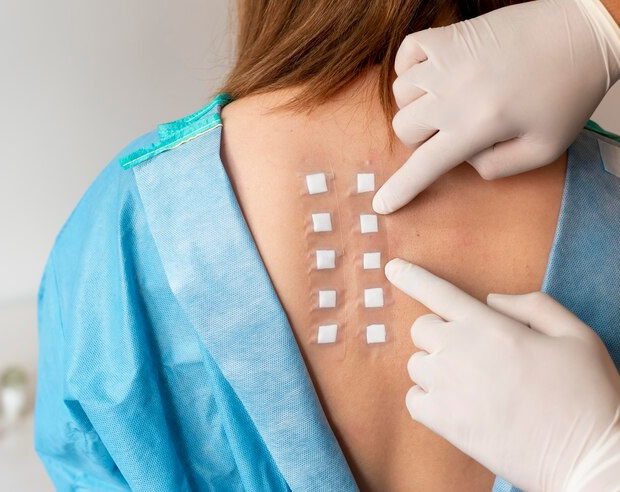
We should also highlight gentle techniques that do not require large incisions. Surgeons make several small incisions, which reduces blood loss and shortens recovery time.
Examples of such operations:
- Laser vaporization. The method is used in the early stages of protrusion and hernias. The laser affects the inner part of the disc, reducing its volume
- Nucleoplasty. Cold plasma, electrodes or a special substance (chymopapain) are injected into the disc to reduce pressure on the nerves
- Epiduroscopy. This is both diagnostics and treatment. The surgeon can examine the spine and immediately perform the necessary manipulations, such as installing catheters or electrodes
Our surgeons have extensive experience in removing tumors of the peripheral nerves, vertebrae and spinal cord. The K+31 center (Moscow) provides consultations, high-precision diagnostics and treatment under the guidance of professionals in the field of neurology and neurosurgery.
Contact us by phone or through the website to make an appointment or get detailed information.
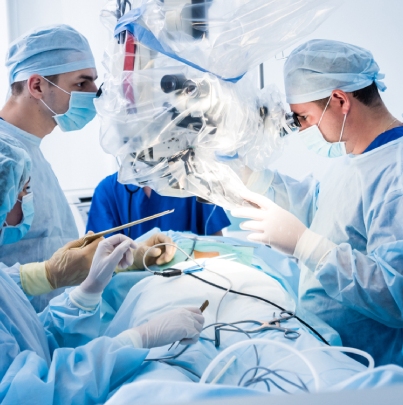
These minimally invasive
surgeries include:
- Laser vaporization - it is used in the early stages of protrusion and herniation of the intervertebral disc, coagulation of the inner part of the disc is carried out
- Nucleoplasty - cold plasma, electrode or chymopapain can be injected into the disc
- Epiduroscopy - examination of the vertebra with the ability to quickly move from diagnosis to treatment in one procedure, used for the placement of catheters or electrodes
Our doctors

This award is given to clinics with the highest ratings according to user ratings, a large number of requests from this site, and in the absence of critical violations.

This award is given to clinics with the highest ratings according to user ratings. It means that the place is known, loved, and definitely worth visiting.

The ProDoctors portal collected 500 thousand reviews, compiled a rating of doctors based on them and awarded the best. We are proud that our doctors are among those awarded.
Make an appointment at a convenient time on the nearest date
Price







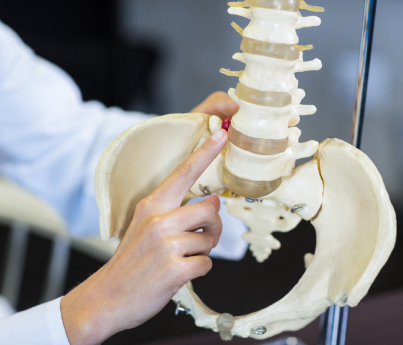
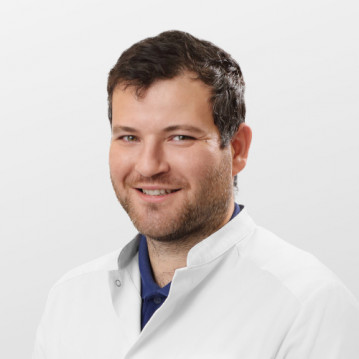
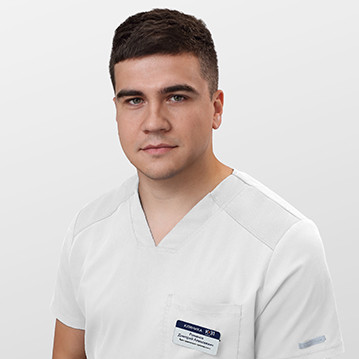
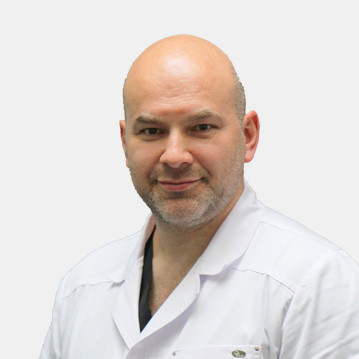
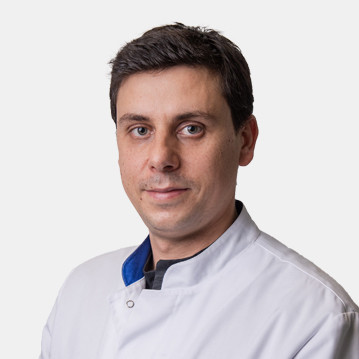
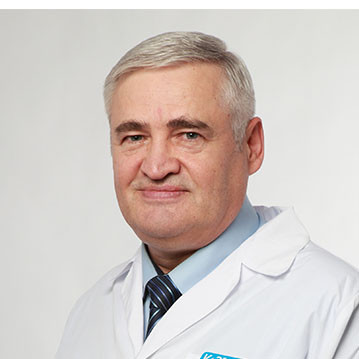
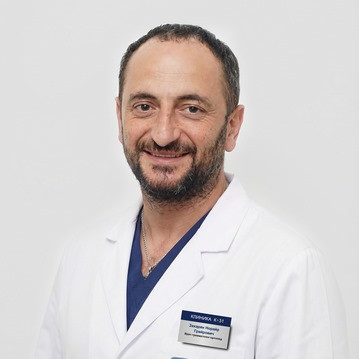
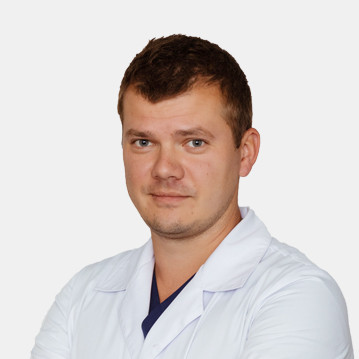
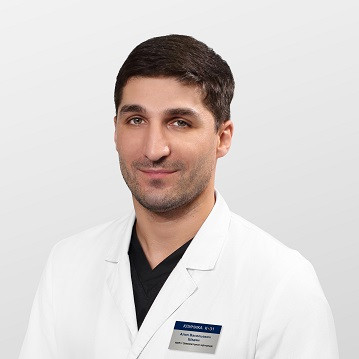
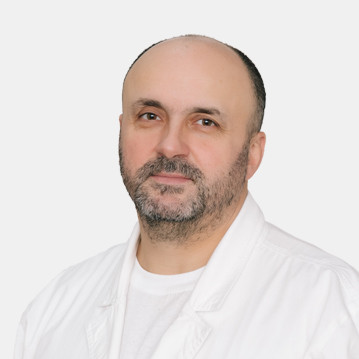
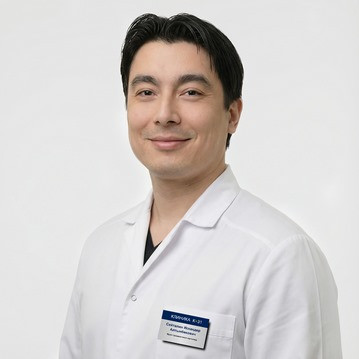
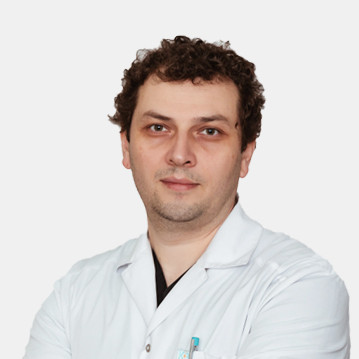
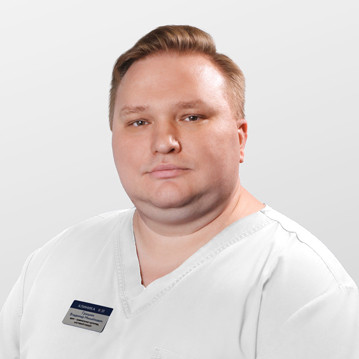
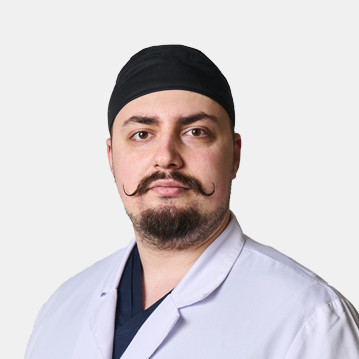
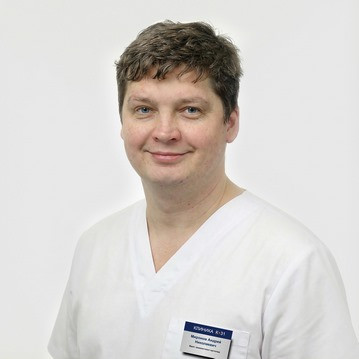
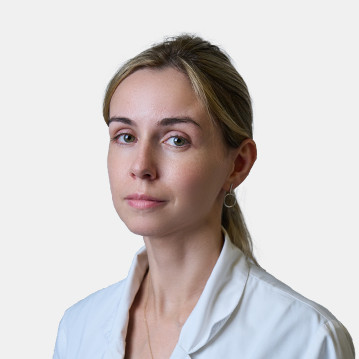
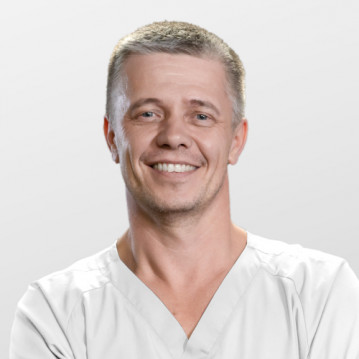
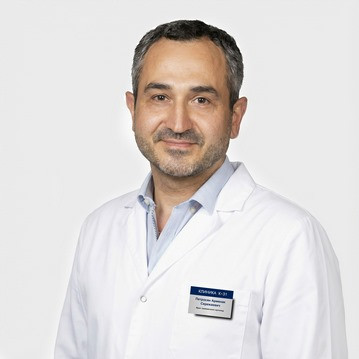
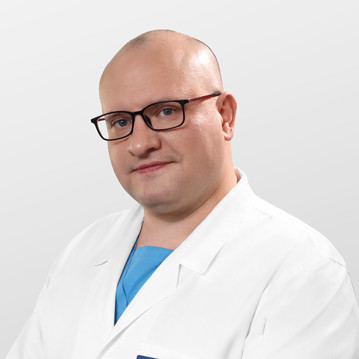
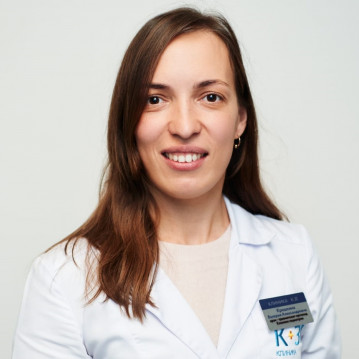
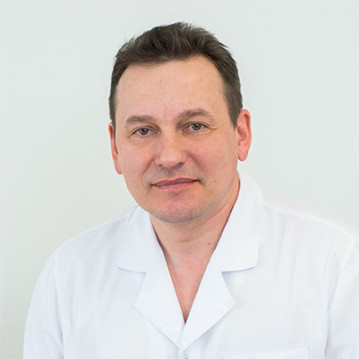
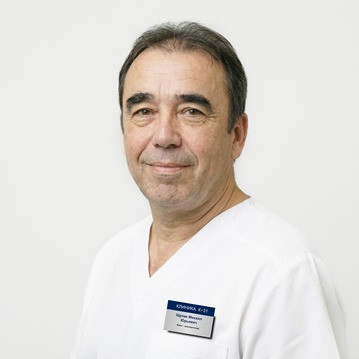
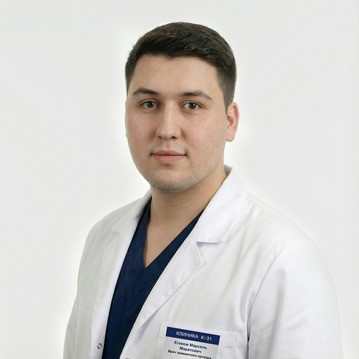
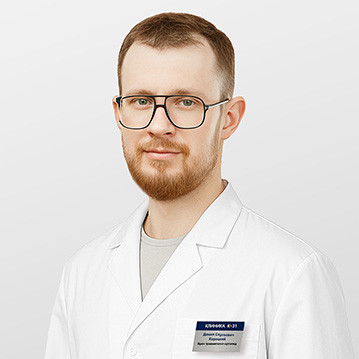
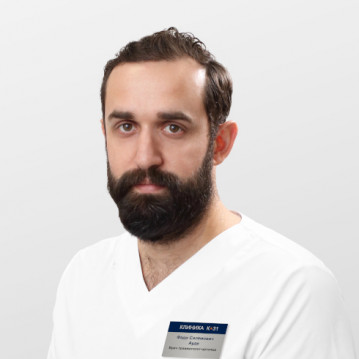
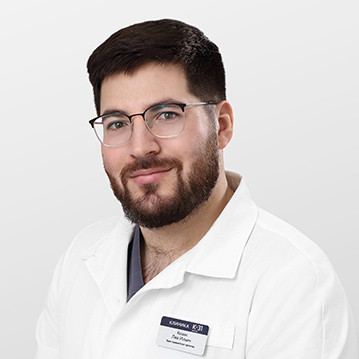
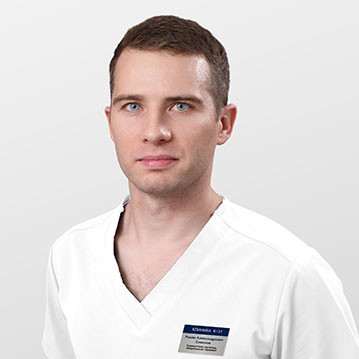
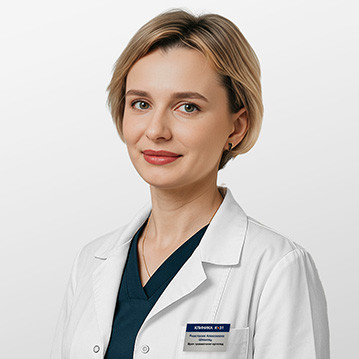
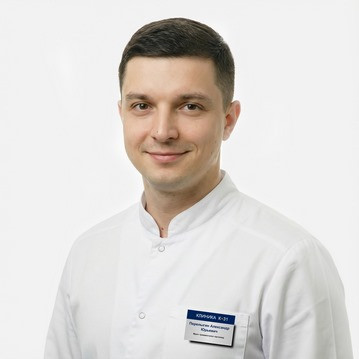
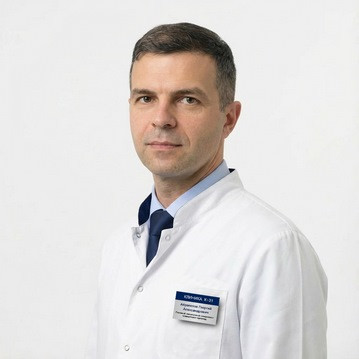

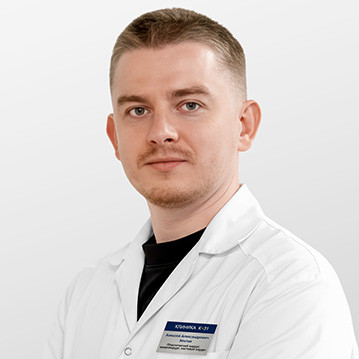
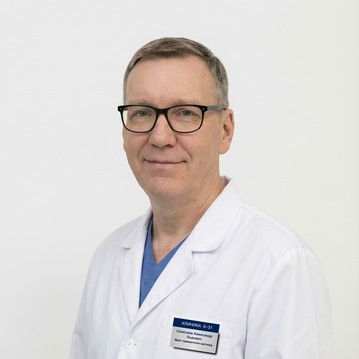


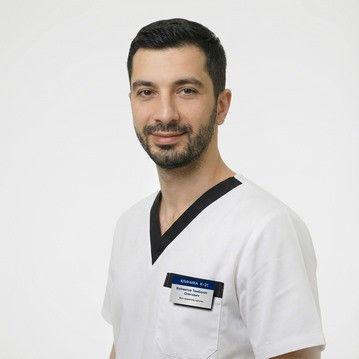

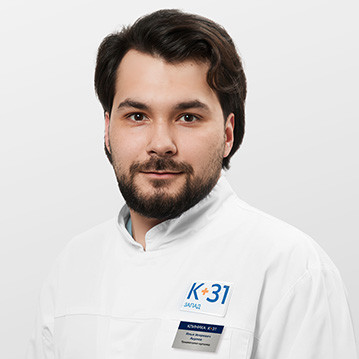
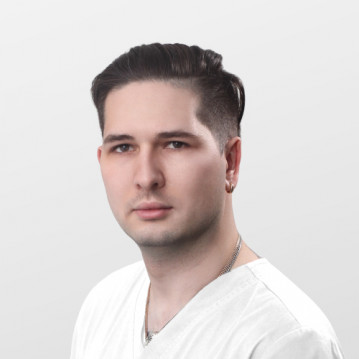
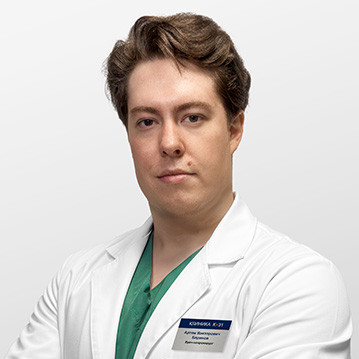
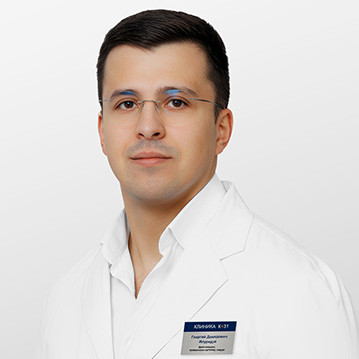
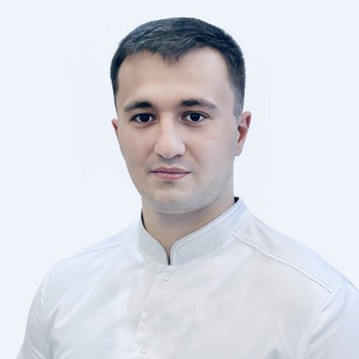







What we offer
For patients with spinal diseases, we have paid services at the K+31 medical center in Moscow. We use the latest diagnostic technologies, advanced methods of spinal neurosurgery, and post-surgery recovery programs. Our team includes neurosurgeons and other high-level specialists who are actively engaged in scientific work and publish research.
Our hospital is equipped so that hospitalization is comfortable and helps you recover faster.
It is easy to get a consultation - come to us, call the emergency department, or make an appointment through the website. We are always happy to help you!